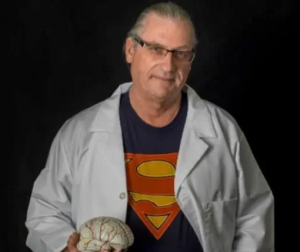Good Candidates To Treat Depression With TMS
BRANDON, FL, UNITED STATES, April 7, 2023/EINPresswire.com/ -- Transcranial Magnetic Stimulation (TMS) is an FDA-approved treatment to reduce depression symptoms with very little risk of side effects.
Brandon TMS and Psychiatry in Brandon, Florida, has also successfully used TMS off-label to treat a wide range of other mental health conditions. Because TMS has not received the extensive research attention of many other mental health treatments, you may have questions about how it works.
Transcranial magnetic stimulation, or TMS, is a type of brain stimulation Brandon TMS and Psychiatry uses to treat depression and numerous other mental health concerns. It’s a painless, non-invasive treatment that requires no advance preparation, anesthesia, or recovery time.
Treatments create magnetic energy pulses that can pass through your skull to stimulate brain cells. That stimulation is thought to improve communication between different regions of your brain, which in turn can improve function.
The magnetic pulses used in TMS are the same strength and type used to create MRI images. This technology has been used for many years and is quickly gaining popularity among mental health specialists.
Transcranial magnetic stimulation is FDA-approved for treatment-resistant depression. At Brandon TMS and Psychiatry, it is also used off-label to treat many other mental health conditions. Some of the applications currently approved in European countries include the following:
Schizophrenia
Chronic pain
Stroke rehabilitation
Parkinson’s disease
Alzheimer’s disease
Post-traumatic stress disorder
Nicotine addiction
For traditional transcranial magnetic stimulation therapy, 36 sessions of 20 minutes each is recommended.
That works out to daily visits for the first six weeks, then three treatments per week for the seventh week, two treatments per week for the eighth week, and one treatment during the ninth week.
“During your visit, you relax comfortably in the MagVenture treatment chair. Your provider places a cotton cap over your skull with marks as a guide for your exact treatment location,” said Dr. Boris Kawliche.
The treatment coil is placed just next to your head, and you may notice some clicking sounds or sensations of knocking, tingling, or tapping on your head, but no pain is associated with treatment sessions.
Dr. Boris Kawliche said, “After your 20 minute session, you can return to normal activities. There are no restrictions on your activity levels and no need for recovery.”
If you have questions about transcranial magnetic stimulation or want information about pricing, insurance coverage, or scheduling concerns, call Brandon TMS and Psychiatry at 813-681-5880 or book a visit online to learn more.

Brandon TMS and Psychiatry in Brandon, Florida, has also successfully used TMS off-label to treat a wide range of other mental health conditions. Because TMS has not received the extensive research attention of many other mental health treatments, you may have questions about how it works.
Transcranial magnetic stimulation, or TMS, is a type of brain stimulation Brandon TMS and Psychiatry uses to treat depression and numerous other mental health concerns. It’s a painless, non-invasive treatment that requires no advance preparation, anesthesia, or recovery time.
Treatments create magnetic energy pulses that can pass through your skull to stimulate brain cells. That stimulation is thought to improve communication between different regions of your brain, which in turn can improve function.
The magnetic pulses used in TMS are the same strength and type used to create MRI images. This technology has been used for many years and is quickly gaining popularity among mental health specialists.
Transcranial magnetic stimulation is FDA-approved for treatment-resistant depression. At Brandon TMS and Psychiatry, it is also used off-label to treat many other mental health conditions. Some of the applications currently approved in European countries include the following:
Schizophrenia
Chronic pain
Stroke rehabilitation
Parkinson’s disease
Alzheimer’s disease
Post-traumatic stress disorder
Nicotine addiction
For traditional transcranial magnetic stimulation therapy, 36 sessions of 20 minutes each is recommended.
That works out to daily visits for the first six weeks, then three treatments per week for the seventh week, two treatments per week for the eighth week, and one treatment during the ninth week.
“During your visit, you relax comfortably in the MagVenture treatment chair. Your provider places a cotton cap over your skull with marks as a guide for your exact treatment location,” said Dr. Boris Kawliche.
The treatment coil is placed just next to your head, and you may notice some clicking sounds or sensations of knocking, tingling, or tapping on your head, but no pain is associated with treatment sessions.
Dr. Boris Kawliche said, “After your 20 minute session, you can return to normal activities. There are no restrictions on your activity levels and no need for recovery.”
If you have questions about transcranial magnetic stimulation or want information about pricing, insurance coverage, or scheduling concerns, call Brandon TMS and Psychiatry at 813-681-5880 or book a visit online to learn more.
BRIAN BURNS
The Free Press
email us here
Legal Disclaimer:
EIN Presswire provides this news content "as is" without warranty of any kind. We do not accept any responsibility or liability for the accuracy, content, images, videos, licenses, completeness, legality, or reliability of the information contained in this article. If you have any complaints or copyright issues related to this article, kindly contact the author above.

